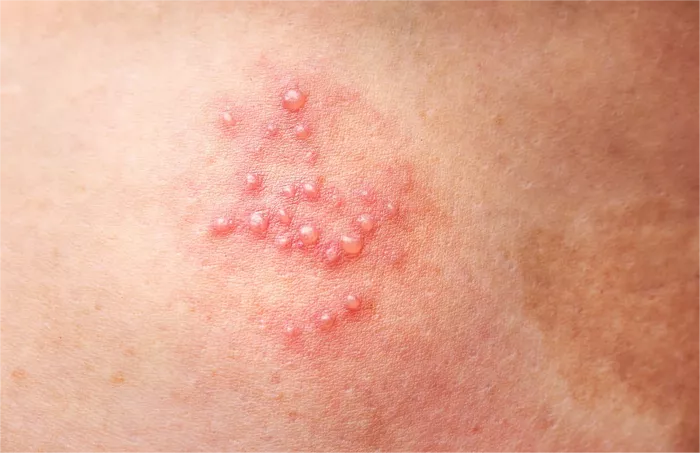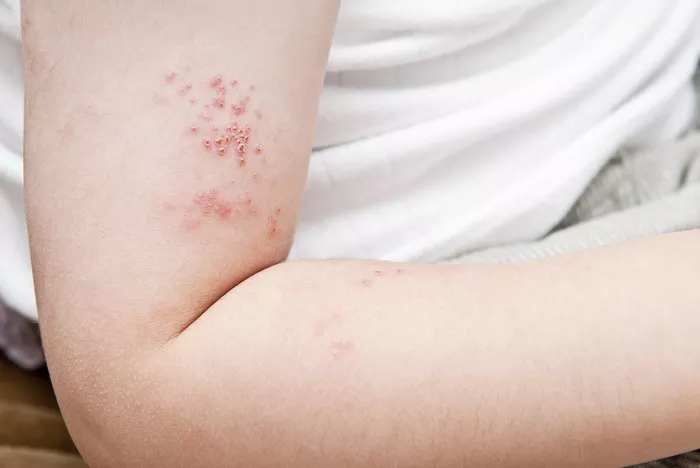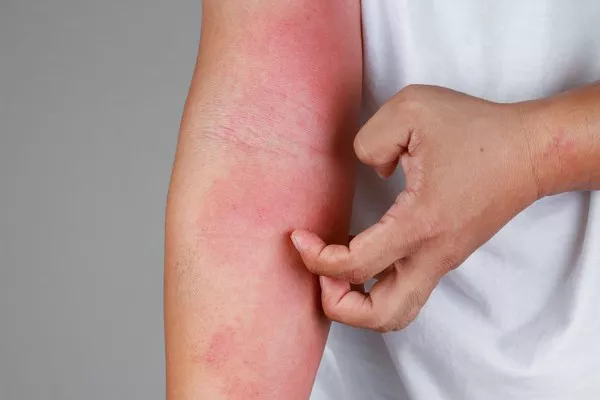Shingles is a condition most people associate with those who have had chickenpox, but there’s often confusion about how the two diseases are related. The question of whether someone who has never had chickenpox can develop shingles is an important one. In this article, we’ll explore the relationship between chickenpox and shingles, how shingles develops, and the likelihood of someone who has never had chickenpox developing shingles.
What is Chickenpox?
Before diving into shingles, it’s important to understand what chickenpox is. Chickenpox is a contagious viral infection caused by the varicella-zoster virus (VZV). It is commonly known as a childhood illness, although it can affect people of all ages.
When someone gets chickenpox, they typically develop a red, itchy rash that turns into fluid-filled blisters. The infection spreads easily through direct contact with the blisters or through respiratory droplets when an infected person coughs or sneezes.
Most people recover from chickenpox without complications, but the virus doesn’t leave the body completely after recovery. Instead, it lies dormant in the nervous system, typically in nerve cells near the spinal cord and brain.
What is Shingles?
Shingles is also caused by the varicella-zoster virus. However, unlike chickenpox, shingles occurs when the dormant virus reactivates in the body, often years after a person has recovered from chickenpox. The reactivated virus travels along nerve fibers to the skin, causing a painful rash that is often localized to one side of the body. Shingles typically appears as a stripe of blisters that wraps around the torso, but it can appear on any part of the body.
The exact cause of reactivation is not fully understood, but it is often triggered by factors that weaken the immune system, such as stress, illness, or aging. People with weakened immune systems or older adults are more likely to develop shingles.
Can Someone Who Has Never Had Chickenpox Get Shingles?
Now that we understand what chickenpox and shingles are, let’s address the main question: can someone who has never had chickenpox get shingles? The short answer is no, a person who has never had chickenpox cannot get shingles. However, the explanation behind this is a little more complex.
The varicella-zoster virus is the culprit in both chickenpox and shingles. For shingles to occur, a person must first be exposed to the virus and contract chickenpox. The virus then remains dormant in the body, where it can reactivate years later, leading to shingles. If someone has never had chickenpox, the varicella-zoster virus is not present in their body, so they cannot experience the reactivation of the virus that causes shingles.
However, this does not mean someone cannot be exposed to the varicella-zoster virus. If a person who has never had chickenpox comes into direct contact with someone who has active chickenpox or shingles, they can become infected with the virus for the first time. This would lead to chickenpox, not shingles. In rare cases, if someone develops chickenpox for the first time as an adult or a child, they may later experience shingles once the virus becomes dormant in their body.
How Does Someone Get Chickenpox in the First Place?
Most people get chickenpox during childhood, although adults who have never had it can also become infected. The virus is highly contagious, and the primary way it spreads is through direct contact with the fluid-filled blisters that appear on the skin of someone infected with chickenpox. It can also spread through respiratory droplets when an infected person coughs, sneezes, or even talks.
Once someone is infected with the varicella-zoster virus and develops chickenpox, they will usually recover within a couple of weeks. After recovery, the virus doesn’t completely leave the body. Instead, it moves into nerve cells, where it lies dormant.
What Triggers the Reactivation of the Virus?
Shingles occurs when the dormant varicella-zoster virus reactivates. While the exact cause of reactivation is not always clear, there are several known factors that increase the likelihood of the virus reawakening.
Age: As people age, their immune systems weaken, making it easier for the virus to reactivate. This is why shingles is more common in people over the age of 50.
Stress: High levels of stress, particularly chronic stress, can weaken the immune system and trigger the reactivation of the virus.
Weakened Immune System: People with weakened immune systems, such as those with cancer, HIV/AIDS, or those undergoing treatments like chemotherapy, are more likely to develop shingles.
Trauma or Injury: Any injury or trauma to the area where the virus is dormant can potentially trigger reactivation.
Medications: Certain medications that suppress the immune system, like steroids or immune-suppressing drugs, can increase the risk of developing shingles.
Can Shingles Be Spread to Someone Who Has Never Had Chickenpox?
While someone who has never had chickenpox cannot get shingles directly, they can become infected with the varicella-zoster virus if they come into contact with the rash of someone with shingles or chickenpox. This means that a person with shingles can potentially spread chickenpox to someone who has never had it.
It’s important to note that shingles cannot be passed from one person to another through casual contact. The varicella-zoster virus can only spread through direct contact with the fluid from the blisters or through respiratory droplets. Once the blisters have crusted over, the risk of spreading the virus is greatly reduced.
If someone who has never had chickenpox contracts the varicella-zoster virus, they will develop chickenpox, not shingles. It is only after having chickenpox that the virus becomes dormant and has the potential to reactivate later in life as shingles.
Preventing Shingles and Chickenpox
The best way to prevent both shingles and chickenpox is through vaccination. Vaccines have made a significant difference in reducing the incidence of both diseases.
Chickenpox Vaccine: The chickenpox vaccine is given to children as part of the standard vaccination schedule. It is highly effective at preventing chickenpox and is recommended for all children and adults who have never had the disease.
Shingles Vaccine: The shingles vaccine is recommended for adults over the age of 50, even if they have already had chickenpox. The vaccine helps reduce the risk of shingles and can also reduce the severity and duration of the disease if it does occur.
For adults who have never had chickenpox and are unsure about their vaccination status, getting the chickenpox vaccine may be an option. Once vaccinated, they are protected against chickenpox and, by extension, shingles.
Conclusion
In summary, someone who has never had chickenpox cannot get shingles because shingles occurs when the varicella-zoster virus, which causes chickenpox, reactivates in the body years after a person has recovered from chickenpox. However, it is possible for someone who has never had chickenpox to become infected with the varicella-zoster virus and develop chickenpox. After recovering from chickenpox, they would then be at risk of developing shingles later in life if the virus reactivates.
Shingles is most common in older adults and those with weakened immune systems, and it can be a painful and debilitating condition. Vaccination is the best way to prevent both chickenpox and shingles, so it’s important for people who have never had chickenpox or the chickenpox vaccine to consider getting vaccinated.
By understanding how chickenpox and shingles are related and how the virus works, we can better protect ourselves from both conditions and reduce the risks associated with them.
Related topics:


























